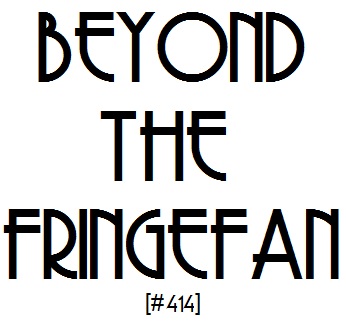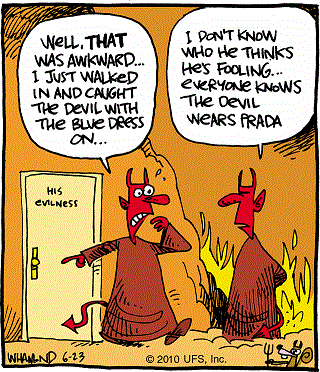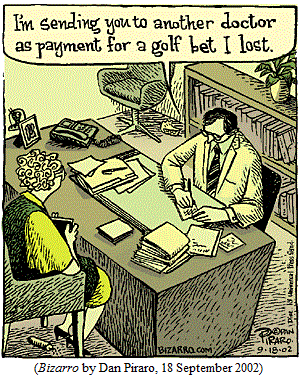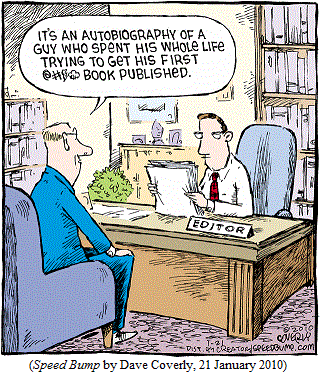


|

|
QUEENS LOGIC: The good news is that I'm now working at an assignment that has medium- if not long-term potential. The weird news is that it's in Queens.
One of my contacts at 24 Seven called a few weeks ago to ask me if I'd be interested in a permanent position at a fashion company. When I said I would, she told me the catch: the company is in Long Island City, but is planning a move within the next year to Mahwah, New Jersey (up near the Rockland County [New York] border). Any candidate for the position would have to commit to working in Mahwah when the time comes, in order to be considered at all.
I looked at some maps and some Google pages, and reached the conclusion that driving to Mahwah in rush-hour traffic would take me two hours each way. (It's more than an hour even when the roads are clear.) Public transit would take even longer. I therefore told the recruiter that I could not in all honesty commit to working in Mahwah.
Apparently, no one else was willing to make such a commitment either, because a few days later I got another call. The company would like me to work freelance in Long Island City for the indefinite future, no Mahwah commitment required. The hourly rate offered was more than I've been paid for any assignment so far, so of course I grabbed at the opportunity.
Long Island City, for the out-of-towners, is in the borough of Queens, not all that far from midtown Manhattan; you can take the Flushing line (#7 subway) from Grand Central and be there in 15 minutes. Of course, the subways are laid out such that with very few exceptions, to go from anywhere in Brooklyn to anywhere in Queens requires you to go through Manhattan, thus crossing the East River twice. Still, it turns out I can get to this work address from the Cadre in about an hour and 20 minutes, door to door, with either one or two changes of trains, and get a seat for most or all of the way, so, especially given the higher pay, it seems, or seemed, worth it. (It turns out that they have no problem with my cycling in—a number of people working there do so—and the trip takes five to ten minutes less by bike. I'll be doing it that way as often as possible while the good weather holds out.)
The other stiletto-heeled shoe dropped at the end of my first day of work: they want me in at 8:30 am on a daily basis. This is the American office of a company that's based in London, England, and the time difference means that by 1 or 2 pm, New York time, most everyone's done for the day at the home office. So now I'm getting up at 5 or so in the morning—something I regard as an unnatural act—to be out the door just past 7. It remains to be seen if I can keep this up for any length of time. My initial contact there thought it might be possible to negotiate a 9:00 or even a 9:30 start time, but when he tried, his bosses summarily vetoed the idea.
The work itself? Well, they're keeping me busy; there's a steady flow of new merchandise being written up for the company's three Web sites, and each writeup has to be proofed for conformity to the company style as well as to standard English. I'm attempting to learn a runway-load of terminology involving fabrics and fashions, and I'm not sure I'm absorbing it fast enough. Fortunately, they issued me a company stylebook, a glossary and a document called "The Glorious Guide to Hyphens," on all of which I'm making copious marginal notes.
Well, I wanted full-time hours at better pay, and I got 'em; just one more case of "be careful what you wish for..." I'll keep plugging away at this until either they implement the move to Mahwah or my body rebels against the 5 am crime against nature; we'll see which happens first.
COME ON, IRENE, TOO-LOO-RI-AY: (well, everyone was making the obvious Leadbelly reference...) We were left pretty much undamaged by Hurricane Irene; we were in evacuation zone C, and only those in zone A were actually told to evacuate. The main problem we had was a fallen tree limb—a big one, about ten feet long—that blocked our driveway and front walk for most of a week. (It came to rest against the tailgate of Daisy the minivan, but did no apparent damage—should I knock wood?) It took a few phone calls, some misinformation from 311, and a lot of waiting on hold, but the city eventually cleared it away.
AND MY BEST FRIEND, THE DOCTOR, WON'T EVEN SAY WHAT IT IS I'VE GOT: A year ago May, I reported on my cholecystectomy (gallbladder removal, to those not trained in medical jargon). I'd had a few of what I now know were gallbladder attacks in the five months leading up to it, yet I had no clue that there was anything wrong with my gallbadder until the day before I entered the hospital. (The February attack had sent me to an emergency room, but all they'd been able to diagnose at the time was dehydration—gallbladder attacks can kill your appetite for both solids and liquids). When I came to Dr H. in May, he sent me for some X-rays and also for an abdominal sonogram. The technician performing the sonogram remarked that it looked as though I had a gallstone. When I returned to Dr. H. the next day with an elevated white-cell count, I mentioned what the technician had said, and Dr. H. responded (just before sending me to the E.R. again) that he'd known I had gallstones for some time.
That last statement stuck in my brain and festered for months—to the point that when I returned to Dr. H. this year for an annual checkup, I raised the questions: "Just how long had you known I had gallstones without bothering to tell me? And what else do you now know about my health that you haven't told me yet?"
For some reason, Dr. H. found this line of questioning offensive. He denied that he had ever said what I remembered him saying; he asserted that he was not and had never been the sort of doctor to hold anything back from a patient; and he opined that if I believed otherwise, it meant that the bond of trust essential to a doctor-patient relationship had been broken, and that I needed to find myself another doctor, because he couldn't continue treating me if I didn't trust him to be honest with me.
I honestly had not expected any of this; I'd expected an explanation, a clarification, or an apology, after which we could resume on good terms the doctor-patient relationship we'd had for fifteen years. Clearly there are things about the way physicians think that I did not comprehend.
 Donna made an attempt to smooth things over the next time I took her to see Dr. H., suggesting that there had been a miscommunication resulting from the combination of my own stress at the time and the fact that English is not Dr. H.'s first language. He wasn't buying any of it; he'd already written me off as a patient and was just awaiting word on which other doctor to send my records to.
Donna made an attempt to smooth things over the next time I took her to see Dr. H., suggesting that there had been a miscommunication resulting from the combination of my own stress at the time and the fact that English is not Dr. H.'s first language. He wasn't buying any of it; he'd already written me off as a patient and was just awaiting word on which other doctor to send my records to.
So now I'm trying to decide, on the basis of scanty and contradictory information, which medical practitioner I'm going to entrust with my life and health for maybe fifteen or twenty years (possibly much less if I make the wrong choice). United Healthcare, through its Web site, will happily list all the PCPs (primary care providers) it covers within a mile or five miles or twenty miles of the Cadre, with ages, education histories and hospital affiliations, but can't or won't tell me which of them is any good, or even which ones have the shortest waiting-room times. There are a few sites that claim to provide independent evaluations based on patient testimonials, and the doctors rated highly on one site don't even get mentioned on the others, so I can't find a consensus.
That's not even considering the number of highly rated practitioners near me who are not even MDs but DOs—osteopathic physicians. What I know about osteopathy as a medical philosophy and about DOs vs MDs is pretty much what I've read on Wikipedia, so it's a whole extra can of worms I'd really rather not open up at this time—but I worry whether if I close off that line of investigation, I'll be depriving myself of a potentially valuable, even lifesaving, source of medical care.
I think I'm going to have to make a fairly arbitrary selection, go talk to that practitioner, and see what kind of impression we make on each other. I imagine I could change PCPs as many times as I want to, as far as United Healthcare is concerned, but it would be nice to once more have a fairly stable medical relationship I could rely on.
REMEMBER WHEN WE WERE IN AFRICA?: The Kid made it back to Cameroon in August as planned, and he's now begun his second year of teaching after another couple of weeks of readjustment and self-doubt. He commemorated his second arrival there by shaving his head, with the help of a few other volunteers. He continues to blog about his experiences at <cameroon [dot] betacantrips [dot] com>; I find it makes interesting reading, though of course I have a certain bias.
 Comments on APA-NYU, Volume 9, #8 (e-APA-NYU #88)
Comments on APA-NYU, Volume 9, #8 (e-APA-NYU #88)
 "Think! One of these days these manuscripts will be so improved that somebody will actually buy them!" That's the proper spirit of positive thinking. May it actually produce real-world results for you. /*/ "I finally got Channel 7 WABC back on my television. To make this happen the coaxial cable connecting the antenna that sits outside my windowsill now partially obstructs my window. ...I'll miss my uncluttered view outside." I thought the view out your window was currently of a new edifice portending the accelerating yuppification of your neighborhood.
"Think! One of these days these manuscripts will be so improved that somebody will actually buy them!" That's the proper spirit of positive thinking. May it actually produce real-world results for you. /*/ "I finally got Channel 7 WABC back on my television. To make this happen the coaxial cable connecting the antenna that sits outside my windowsill now partially obstructs my window. ...I'll miss my uncluttered view outside." I thought the view out your window was currently of a new edifice portending the accelerating yuppification of your neighborhood.
>Portions of the preceding wonder if dozing off at your desk
makes it a dream job.<